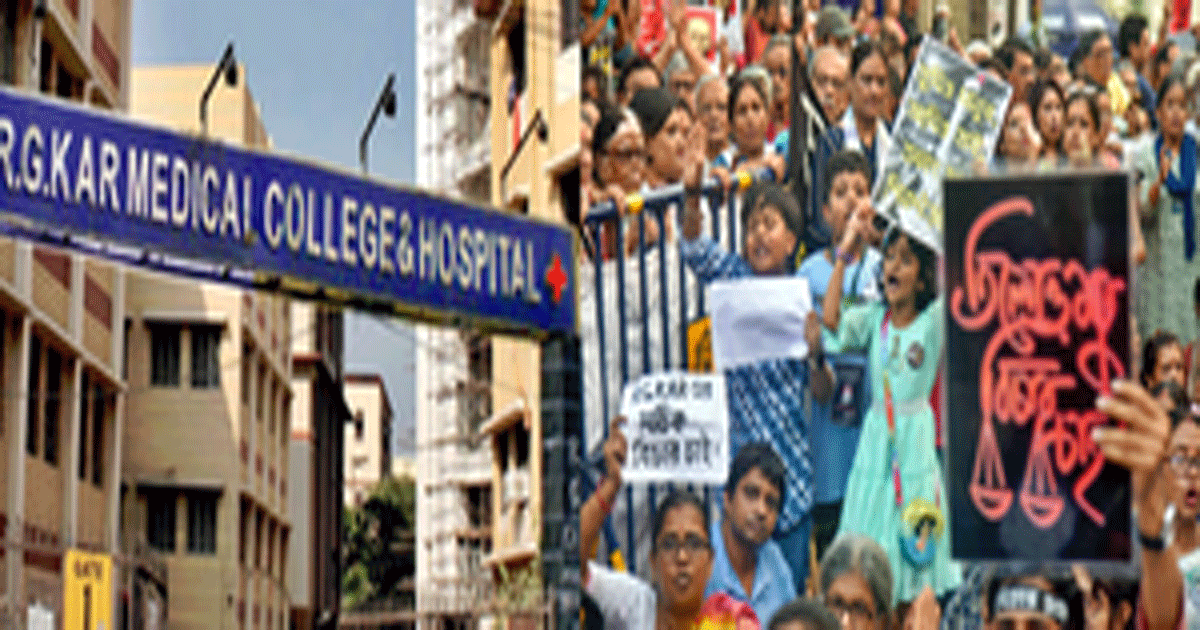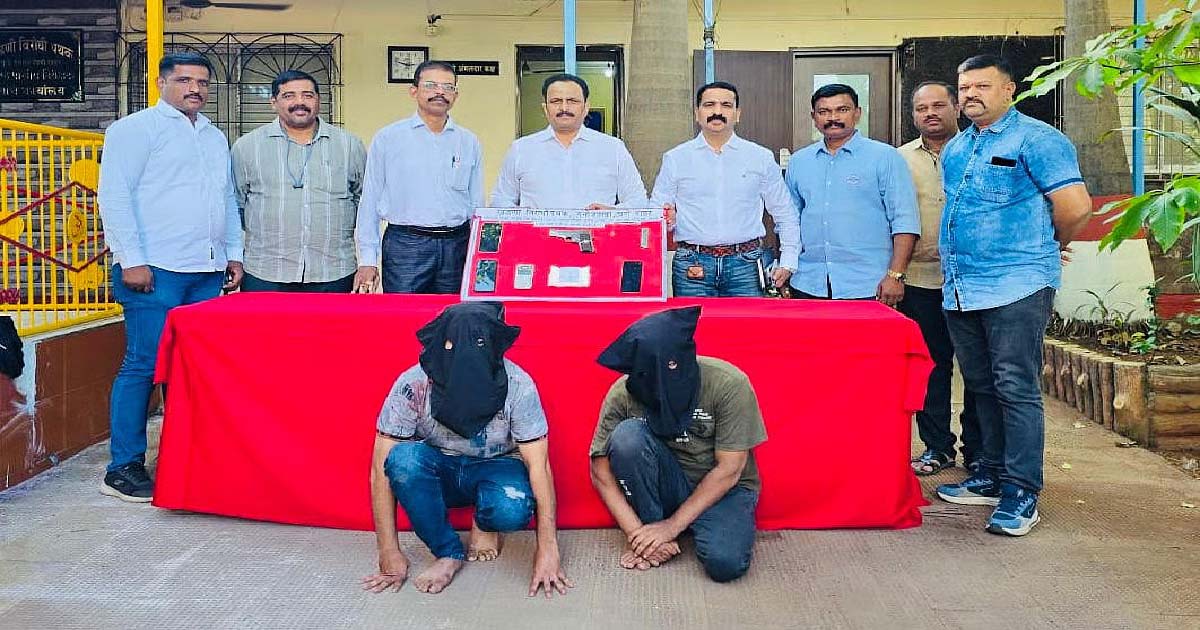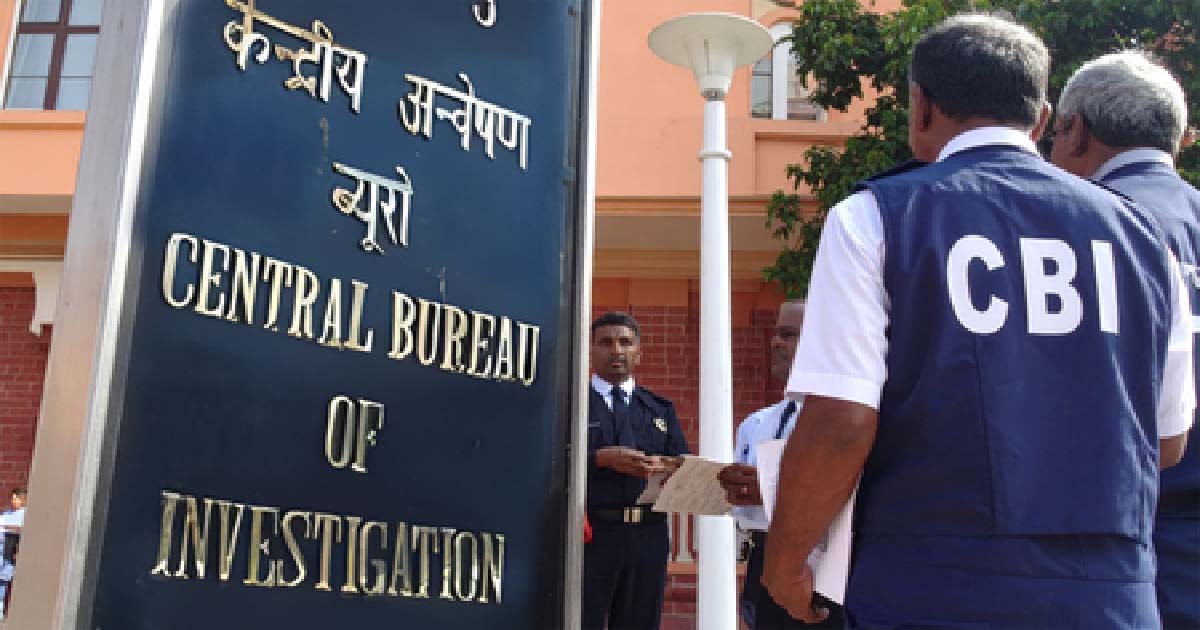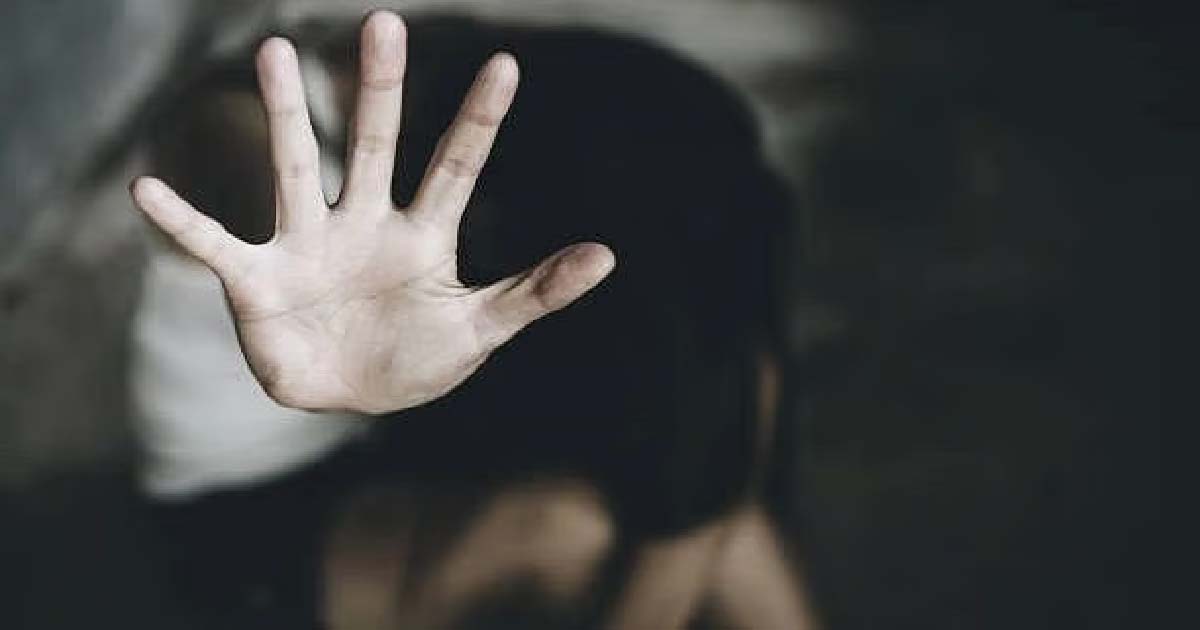Crime
Year Ender: Bengal’s shocker RG Kar case in 2024 saw massive protests amid shoddy probe claims

Kolkata, Dec 31: 2024 was an eventful year for West Bengal for several reasons, but the incident that rocked the state and the country was the ghastly rape and murder of a woman doctor of state-run R.G. Kar Medical College & Hospital in Kolkata within the premises in August.
The following sequence of events made the entire investigation process a mere farcical exercise.
The scripted plot started on the morning of August 9 soon after the body of the victim was recovered from the seminar hall within the R.G. Kar premises. As per the victim’s parents, on the same morning, they received subsequent calls from a woman claiming to be an Assistant Superintendent of the hospital making contradictory statements each time.
“First she said that my daughter had become seriously ill. Next, she claimed that my daughter had committed suicide,” claimed the victim’s father to the media persons after the tragedy.
An audio clip of the purported conversation also became viral in the social media then which authenticated the allegations of the victim’s parents.
Kolkata Police started the initial investigation and soon took the prime accused in the case and civic volunteer Sanjay Roy in custody. However, several lapses in the process of initial investigation by the city police started surfacing then. Some of them were lackadaisical in cordoning off the entire crime scene allowing several unwanted individuals crowding there and lapses in the post-mortem process that raised suspicions about the tampering with evidence in the matter.
Following these developments, the civil society flared up in anguish which was followed by a series of protests by people throughout the state. The protests were led by representatives from the medical fraternity in the state.
Slowly, the protest fever gripped other states in the country and subsequently similar protest demonstrations by non-resident Indians settled in different countries abroad also started surfacing.
The ongoing protest demonstrations took a dramatic turn at midnight of August 14 when almost the entire state was on the streets condemning the macabre tragedy as well as demanding the safety of women at the workplace.
A group of miscreants suddenly barged in within the R.G. Kar premises and ransacked portions of the emergency department of the hospital. Later information surfaced that their main target was the floor of the purported “scene of crime” that is the seminar hall where the body of the victim was recovered, clearly hinting that the attack was orchestrated to destroy the evidence. The development also diverted the media attention on that night from the protest or demonstration to the event of ransacking.
This development flared up public protests which were aggravated further by the decision of the junior doctors to go on fast-unto-death protest demanding justice for the victims.
In the meantime, there were two subsequent developments on the legal front. First, the Central Bureau of Investigation (CBI) took charge of the investigation from the city police following an order by a division bench of Calcutta High Court. Secondly, the Supreme Court headed by the then Chief Justice D.Y. Chandrachud took up the matter for hearing on a suo motu basis.
The initial days of the CBI probe in the matter were highly exciting with information about tampering of evidence during the phase of initial investigation by the city police surfacing one after another.
The excitement reached its peak when CBI arrested the former and controversial principal of R.G. Kar Sandip Ghosh and the former SHO of Tala Police Station Abhijit Mondal on charges of misleading the investigation and tampering with evidence.
All these were going on while the protests were gaining momentum with a group of junior doctors participating in the hunger strike started falling sick one after another. Even the West Bengal government, at that point in time, seemed a bit helpless in the midst of all-around pressure and made desperate attempts to sit at the discussion table with the junior doctors to end the impasse.
However, the series of heartbreaks started soon first with the first charge sheet of CBI identifying the civic volunteer Sanjay Roy as the “sole prime accused” in the crime of rape and murder.
At the same time following a meeting with Chief Minister Mamata Banerjee, the junior doctors withdrew from the hunger strike which to a large extent dampened the general protest mood involving civil society and common people.
The final blow came on December 13, when a special court in Kolkata granted “default bail” to Ghosh and Mondal in the rape and murder as CBI failed to submit a supplementary charge sheet against the duo within 90 days from the date of their arrests.
Following this development, there was an air of frustration and suspicion about the sincerity with which the central investigating agency also was conducting the probe. Suspicions surfaced further following a report from the Central Forensic Science Laboratory (CFSL) that contradicted several points that surfaced during the course of the investigation.
The first contradiction was about the “scene of crime”. While both Kolkata Police and CBI conducted the investigation considering the seminar hall from where the body of the victim was discovered as the scene of the crime, the CFSL report clearly stated there was no evidence of scuffle at the seminar room thus creating doubts on whether that place was actually the scene of crime or not.
Secondly, the CFSL report, while not ruling out the possibility of murder and crime being conducted by one accused, advocated for further research based on different past scientific reports by experts in similar cases can lead to the final conclusion on whether more than one person was involved in the crime.
At the same time, the CFSL report clearly stated that the confidentiality factor of the post-mortem process of the body of the victim was compromised and standard protocols were not followed during that process.
The seventh point mentioned in the CSFL report is, “Observation of the videography of the PM examination revealed that several people were present inside the post-mortem hall and some of them were taking photographs and making videos on their personal mobile phones, which is against the standard and accepted protocol and practice to maintain confidentiality of the case and dignity of the deceased,” the report said.
Crime
Thane Crime Branch Busts Mephedrone Racket, Seizes Drugs, Firearm And Arrests Two In High-Intensity Raid

Thane: The Anti-Extortion Squad of the Crime Branch, Thane, acting on secret information, raided a gang involved in the illegal sale of Mephedrone (M.D.) and arrested two accused. Police seized 108.8 grams of Mephedrone worth Rs 10.88 lakh, a country-made pistol, and a live cartridge—totaling Rs 11.41 lakh.
According to the sequence of events, on the night of December 8 around 10:50 PM, the police team raided Shri Gajanan Residency in Adavali-Dhokali, Kalyan East, and caught Aakib Iqbal Bagwan (33). A large quantity of M.D. and an unlicensed country-made pistol were recovered from his possession. Further probe revealed that Bagwan was already wanted in two NDPS cases at Bazarpeth Police Station, Kalyan.
During interrogation, Bagwan disclosed that the pistol was supplied to him by Bharat Shatrughna Yadav. Using technical investigation and confidential sources, the police detained Yadav as well. A live cartridge was recovered from him during the search.
A case has been registered against both the accused at Manpada Police Station under relevant sections of the NDPS Act, the Indian Arms Act, and the Maharashtra Police Act.
The operation was carried out under the guidance of DCP Amarsingh Jadhav and ACP Vinay Ghorpade by Senior Police Inspector Shailesh Salvi, Assistant Police Inspector Sunil Tarmale, and team members Bhosle, Kanade, Thakur, Rathod, Shinde, Patil, Gaikwad, Jadhav, Gadge, Pavaskar, Hivare, Waykar, Shejwal, and Bhosle.
Crime
CBI court sentences ex-village pradhan, fair price shopkeeper to 10 year-jail term in SGRY fraud case

New Delhi, Dec 12: A special CBI court in Lucknow has sentenced two individuals — a former village pradhan and a fair-price shopkeeper — to 10 years of rigorous imprisonment in a major corruption case involving misappropriation of over Rs one crore under the Sampurna Grameen Rozgar Yojna (SGRY), the agency said on Friday.
The verdict was delivered on Thursday. According to an official release, the court convicted Satya Narayan Prasad Patel, then village pradhan, and Shahnawaj Alam, then fair-price shopkeeper (kotedar), imposing a total fine of Rs 55,000 on the two.
The court held them guilty of causing wrongful loss to the government exchequer by siphoning off cash and foodgrains allocated for rural employment and welfare.
The case dates to 2006, when Narhi Police Station in Ballia district registered an FIR alleging large-scale irregularities in SGRY distribution.
The Central Bureau of Investigation (CBI) took over the probe on October 31, 2008 and registered a case against 172 accused persons, including officials responsible for implementing the scheme at the village and district levels.
Investigators found that the accused caused a wrongful loss of Rs 65 lakh in cash and misappropriated foodgrain worth Rs 45.26 lakh, preparing forged records and using fraudulent means to divert government resources intended for the rural poor.
“It was alleged that the accused persons had caused wrongful loss to the Government Exchequer to the tune of Rs 65.00 lakh in cash and foodgrain worth Rs 45.26 lakh and corresponding gain to themselves by cheating, fraud, and preparing forged documents under Sampurna Grameen Rozgar Yojna (SGRY),” the CBI said in its press note.
After a detailed investigation, the CBI filed a charge sheet on November 10, 2010, against three individuals: Satyendra Singh Gangwar, then Chief Finance and Accounts Officer of the District Rural Development Agency (DRDA) Ballia; Satya Narayan Prasad Patel; and Shahnawaj Alam.
Following the trial, the CBI court convicted Patel and Alam but acquitted Gangwar of all charges.
Crime
Mumbai Professor Seeks Anticipatory Bail After Molestation Case, Claims Mental Illness And Attempt To Tarnish Image

Mumbai: A guest professor, booked for molesting female students at the annual function of St. Xavier’s College in south Mumbai, has approached the sessions court for an anticipatory bail, claiming he is suffering from a mental ailment and the case had been lodged to ruin his image. The court has reserved the plea for order next week.
As per the FIR lodged with the Azad Maidan police station, the professor was invited at an event of National Hindi Parishad, held on November 24, wherein he allegedly sexually harassed nine students and one retired teacher. It is claimed that he exhibited obscenity during the festival.
While seeking protection from the arrest, the professor has claimed he is suffering from depression and other health issues, and has on several occasion attempted to commit suicide. He claimed he is currently admitted in the hospital due to his mental ailment. The professor claimed he is ready to appear before the officer through video conferencing after he is discharged from the hospital.
The plea was opposed by the prosecution on the ground that from the statements taken from the victim women, the accused appears to be of “a perverted nature”, and the possibility of him behaving indecently with other women cannot be ruled out. The police have also raised an apprehension of communal tension as the accused and the victims are of different religions.
-

 Crime3 years ago
Crime3 years agoClass 10 student jumps to death in Jaipur
-

 Maharashtra1 year ago
Maharashtra1 year agoMumbai Local Train Update: Central Railway’s New Timetable Comes Into Effect; Check Full List Of Revised Timings & Stations
-

 Maharashtra1 year ago
Maharashtra1 year agoMumbai To Go Toll-Free Tonight! Maharashtra Govt Announces Complete Toll Waiver For Light Motor Vehicles At All 5 Entry Points Of City
-

 Maharashtra1 year ago
Maharashtra1 year agoFalse photo of Imtiaz Jaleel’s rally, exposing the fooling conspiracy
-

 National News1 year ago
National News1 year agoMinistry of Railways rolls out Special Drive 4.0 with focus on digitisation, cleanliness, inclusiveness and grievance redressal
-

 Maharashtra1 year ago
Maharashtra1 year agoMaharashtra Elections 2024: Mumbai Metro & BEST Services Extended Till Midnight On Voting Day
-

 National News1 year ago
National News1 year agoJ&K: 4 Jawans Killed, 28 Injured After Bus Carrying BSF Personnel For Poll Duty Falls Into Gorge In Budgam; Terrifying Visuals Surface
-

 Crime1 year ago
Crime1 year agoBaba Siddique Murder: Mumbai Police Unable To Get Lawrence Bishnoi Custody Due To Home Ministry Order, Says Report












